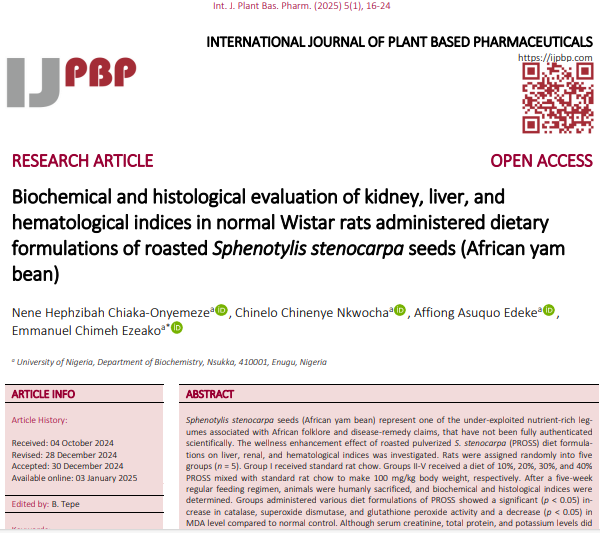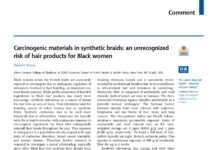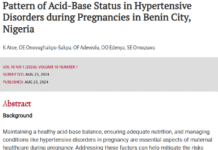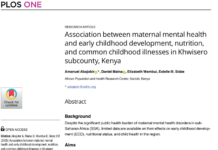 January 2025: Paper of the Month by Chiaka-Onyemeze et al. 2025 – African Yam Bean Benefits: Study Reveals Hepatic and Renal Health Boost in Wistar Rats
January 2025: Paper of the Month by Chiaka-Onyemeze et al. 2025 – African Yam Bean Benefits: Study Reveals Hepatic and Renal Health Boost in Wistar Rats
A recent study by Chiaka-Onyemeze et al. (2025) titled “Biochemical and histological evaluation of kidney, liver, and hematological indices in normal Wistar rats administered dietary formulations of roasted Sphenotylis stenocarpa seeds (African yam bean)” published in the International Journal of Plant-Based Pharmaceuticals reveals that moderate consumption of roasted Sphenostylis stenocarpa seeds (African yam bean) enhances hepatic and renal well-being in Wistar rats.
“
Moderate consumption of roasted African yam bean seeds enhances liver and kidney health, boosts antioxidants, and reduces oxidative stress. – Chiaka-Onyemeze et al. 2025
The study explores the biochemical and histological impact of dietary formulations containing roasted Sphenostylis stenocarpa seeds, commonly known as African yam beans, on kidney and liver functions, as well as hematological parameters in healthy Wistar rats. The findings reveal that moderate consumption of these seeds promotes hepatic and renal health by significantly enhancing antioxidant enzyme activity and improving blood health markers. Additionally, the research highlights a notable reduction in lipid peroxidation and oxidative stress, which are linked to various chronic conditions. These results suggest that African yam beans may serve as a functional food ingredient with potential benefits in managing lifestyle diseases such as hypertension and diabetes, offering a natural approach to improving overall health and preventing oxidative damage.
How the Study was Conducted
The study was conducted using a variety of methods to evaluate the effects of roasted Sphenostylis stenocarpa seeds (African yam bean) on kidney, liver, and hematological indices in Wistar rats. Fresh seeds of S. stenocarpa were collected from a farm in Orba village, Enugu, Nigeria. The seeds were roasted at about 300°C for an hour, then pulverized into fine particles. Twenty-five Wistar rats were used in the study. They were acclimatized for fourteen days under optimal conditions and then randomly assigned into five groups of five rats each. The rats were fed different diet formulations of roasted S. stenocarpa seeds mixed with standard rat chow at specified ratios (10%, 20%, 30%, and 40%) for five weeks. Blood samples were collected for hematological analysis using a Sysmex KX-21N hematology analyzer. Liver function markers, lipid profile indices, and kidney function parameters were determined using a Roche Cobas 6000 biochemistry analyzer. Liver and kidney tissues were excised, fixed in 10% buffered formalin, and processed for histological examination. Photomicrographs were captured to assess the state of the liver and kidney tissues. Data were analyzed using one-way and two-way analysis of variance (ANOVA) with the SPSS tool. The significance level was set at p = 0.05.
What the Authors Found
The authors found that moderate consumption of roasted Sphenostylis stenocarpa seeds (African yam bean) enhances hepatic and renal well-being in Wistar rats. The study posits that there was a significant increase in the activity of catalase, superoxide dismutase, and glutathione peroxidase in the liver, indicating enhanced antioxidant defense mechanisms. The level of malondialdehyde (MDA), a marker of lipid peroxidation, decreased significantly, suggesting reduced oxidative stress.
Why is this important?
Nutritional Value: The African yam bean is an underutilized legume with high nutritional value. The study highlights its potential as a dietary component that can enhance liver and kidney health, improve antioxidant enzyme activity, and boost hematological indices.
Health Benefits: The findings suggest that moderate consumption of roasted Sphenostylis stenocarpa seeds can help manage conditions like hypertension and diabetes by improving lipid profiles and reducing oxidative stress.
Scientific Validation: The study provides scientific validation for the traditional use of African yam bean in African folklore as a remedy for various diseases. This can lead to increased acceptance and utilization of this legume in modern diets.
Food Security: By promoting the use of underutilized legumes like the African yam bean, the study contributes to food security, especially in regions plagued by food insecurity. It offers an affordable and nutritious food source that can help combat malnutrition.
Future Research: The study opens avenues for further research into the long-term effects of consuming roasted African yam bean seeds and their potential benefits for human health.
What the Authors Recommended
- The authors suggest incorporating roasted African yam bean seeds into the diet to enhance hepatic and renal well-being, improve antioxidant enzyme activity, and boost hematological indices.
- The authors highlight the potential of these seeds in managing conditions like hypertension and diabetes, given their ability to improve lipid profiles and reduce oxidative stress.
- The study recommends further research to assess the long-term effects of consuming roasted African yam bean seeds, especially in individuals with hypertension, diabetes, or renal impairment.
- The authors emphasize the importance of careful dietary recommendations, particularly regarding sodium and chloride levels, to avoid potential risks such as electrolyte imbalances.
- The study advocates for increased awareness and utilization of underutilized legumes like the African yam bean to promote food security and combat malnutrition.
In conclusion, the study by Chiaka-Onyemeze et al. underscores the significant health benefits of roasted Sphenostylis stenocarpa seeds (African yam bean), particularly in enhancing hepatic and renal functions while reducing oxidative stress and improving hematological indices. These findings not only validate the traditional use of this underutilized legume but also highlight its potential as a functional food ingredient for managing chronic conditions such as hypertension and diabetes. By promoting the dietary incorporation of African yam beans, this research contributes to food security, nutritional diversity, and the global fight against malnutrition, paving the way for further studies to explore its long-term effects on human health.
















 The African Research (AR) Index is a comprehensive scholarly directory and database focused explicitly on journal publishers that publish and disseminate African research.
The African Research (AR) Index is a comprehensive scholarly directory and database focused explicitly on journal publishers that publish and disseminate African research.

